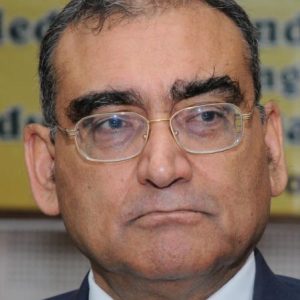The relationship between Hindus and Muslims in India has long been portrayed as fraught with conflict, often driven by political and communal narratives.
Pt. Tribhuwan Nath Katju was my great-grandfather (the father of my grandfather, Dr. K.N. Katju, former Union Home and Law Minister in Pt. Nehru’s cabinet, Governor of West Bengal and Odisha, and Chief Minister of Madhya Pradesh).
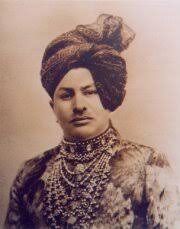
Nawab Iftikhar Ali Khan
The story of the relationship between him and the Nawab of the Indian princely state of Jaora, Nawab Iftikhar Ali Khan, which I am recounting here, reveals the true nature of relations between Hindus and Muslims in India. It challenges the false propaganda that these two communities were intrinsically hostile to each other.
Before telling this story, I’ll give some background. I am a Kashmiri Pandit. My ancestor, Pt. Mansa Ram Katju, migrated from Kashmir about 200 years ago and entered the service of the Nawab of Jaora, Abdul Ghafoor Khan.
I should mention that there are two kinds of Kashmiri Pandits—those who speak the Kashmiri language (which is completely different from Hindi/Urdu) and those who do not. Those who speak Kashmiri, like my wife (their population would be about 400,000 today), are descended from families who remained in the Kashmir Valley until they fled in terror during the 1990s due to attacks and persecution by Islamic fundamentalists.
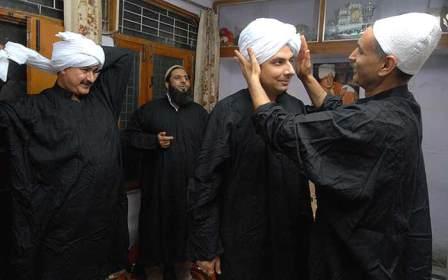
Kashmiri Pandits
Those who do not speak Kashmiri, like myself (we only know Hindi/Urdu and English), are about 200,000 today, and our ancestors migrated 150-200 years ago. Because we were proficient in Urdu and Persian—the court languages of Indian princely states—we found employment in those states.
The ancestors of Pt. Jawaharlal Nehru, Sir Tej Bahadur Sapru, Dr. Katju, and others all migrated in this way, not because of religious persecution.
Before 1947, part of India was under direct British rule, while another part was under princely states. Jaora was one of these princely states, ruled by a Muslim Nawab.
As I mentioned earlier, my ancestor Pt. Mansa Ram Katju (the great-grandfather of my grandfather, Dr. K.N. Katju) migrated from Kashmir around 200 years ago and took up service in the court of the Nawab of Jaora.
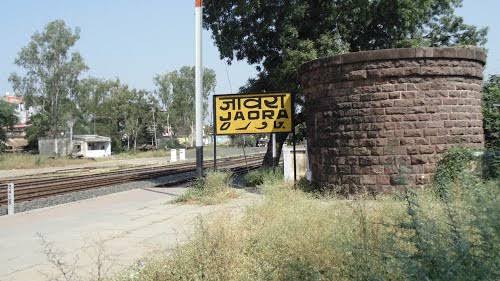
Jaora
Today, Jaora is only a tehsil in the Ratlam district of western Madhya Pradesh (on the border with Rajasthan), but during British rule, it was the fourth-largest princely state in the Central Provinces (as Madhya Pradesh was then called), after Gwalior, Bhopal, and Indore.
For several generations, my ancestors served under the Nawabs of Jaora. Pt. Tribhuwan Nath Katju was the Dewan under Nawab Iftikhar Ali Khan. The two were very close. Pt. Tribhuwan Nath was about 15-20 years older than the Nawab, and as a child, the Nawab had played in his lap. For many decades, Pt. Tribhuwan Nath served the Nawab loyally, and the Nawab trusted him completely.
Whenever Pt. Tribhuwan Nath was out for an evening walk, and the Nawab, who enjoyed horseback riding, came near him, the Nawab would dismount to greet him—something he wouldn’t do for anyone else.

Pt. Tribhuvan Katju
Pt. Tribhuwan Nath died in 1945 (the year before I was born). He had retired around 1920, but the Nawab ensured that his pension was set at the same amount as his last drawn salary, Rs 300 per month, which was a significant sum at the time. Even after retirement, Pt. Tribhuwan Nath visited the palace daily, and if he was unable to visit due to illness or other reasons, a messenger from the Nawab would come to his home to check on him.
Every summer, Pt. Tribhuwan Nath would visit Allahabad to spend a few months with his son, Dr. K.N. Katju (who had become a top lawyer at the Allahabad High Court), and his family. The last time he visited Allahabad was around 1935. During that time, he received a letter from the Nawab stating, “Panditji, aapke baghair mujhe kuch achcha nahi lagta hai” (Panditji, I don’t feel good without you).
Upon receiving the letter, Pt. Tribhuwan Nath caught the first available train and returned to Jaora. Upon his arrival, he went straight to the Nawab and said, “Nawab Saheb, aapne yeh baat mujhe pehle kyon nahi batai?” (Nawab Saheb, why didn’t you tell me this earlier?). After that, for the next ten years, he never left Jaora, fearing that if he did, the Nawab would be unhappy.
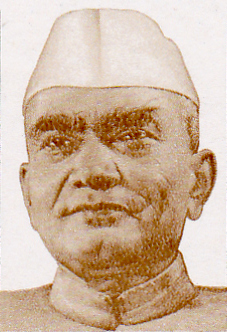
Kailash Nath Katju
When Pt. Tribhuwan Nath died in 1945, the entire town of Jaora was in mourning. The Nawab (who was older than my grandfather, Dr. K.N. Katju) made a public announcement that he was the eldest son of Pt. Tribhuwan Nath, and thus people should first come to him to offer their condolences before visiting Dr. K.N. Katju, who had arrived from Allahabad.
This story demonstrates the close and amicable relations between Hindus and Muslims, and it disproves the narrative spread by some vested interests that they were enemies.
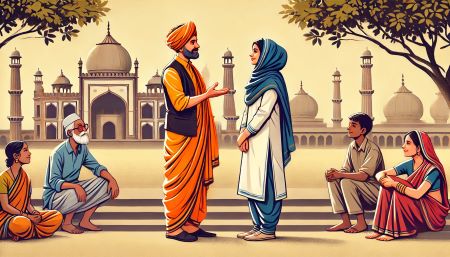 I, too, have many Muslim friends, not only in India but also in Pakistan and other countries, with whom I speak almost daily on WhatsApp. I also have a large fan base in Pakistan.
I, too, have many Muslim friends, not only in India but also in Pakistan and other countries, with whom I speak almost daily on WhatsApp. I also have a large fan base in Pakistan.
I am sharing a video of my interview in California by my friend Haider Raza, who is from Lahore but lives in California, where he invited me to visit Lahore.
Here is another interview by my Pakistani friend, Sajjad Azhar Pirzada, a journalist in Lahore. ![]()
Disclaimer : PunjabTodayNews.com and other platforms of the Punjab Today group strive to include views and opinions from across the entire spectrum, but by no means do we agree with everything we publish. Our efforts and editorial choices consistently underscore our authors’ right to the freedom of speech. However, it should be clear to all readers that individual authors are responsible for the information, ideas or opinions in their articles, and very often, these do not reflect the views of PunjabTodayNews.com or other platforms of the group. Punjab Today does not assume any responsibility or liability for the views of authors whose work appears here.
Punjab Today believes in serious, engaging, narrative journalism at a time when mainstream media houses seem to have given up on long-form writing and news television has blurred or altogether erased the lines between news and slapstick entertainment. We at Punjab Today believe that readers such as yourself appreciate cerebral journalism, and would like you to hold us against the best international industry standards. Brickbats are welcome even more than bouquets, though an occasional pat on the back is always encouraging. Good journalism can be a lifeline in these uncertain times worldwide. You can support us in myriad ways. To begin with, by spreading word about us and forwarding this reportage. Stay engaged.
— Team PT
